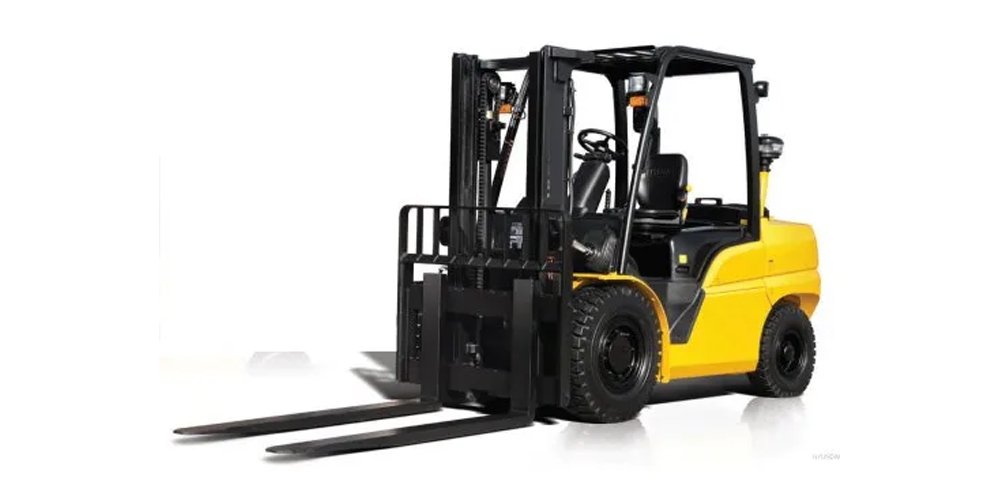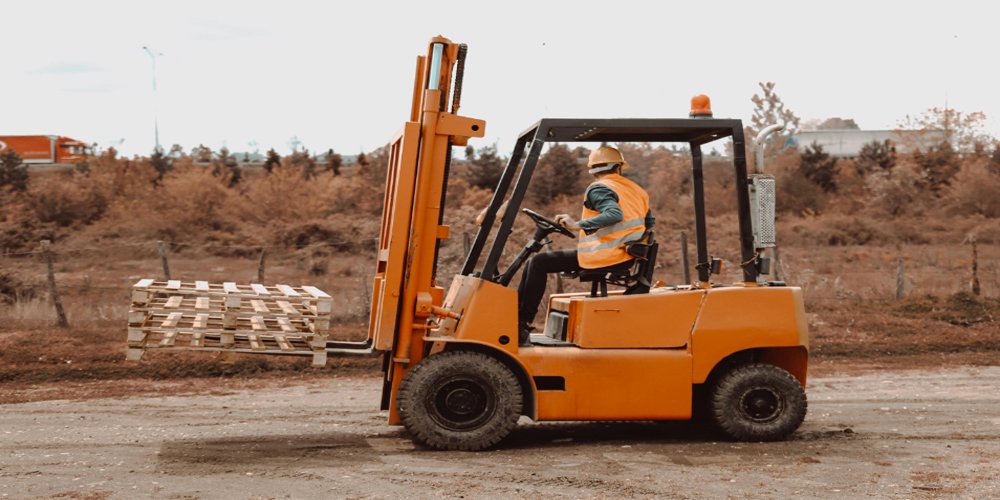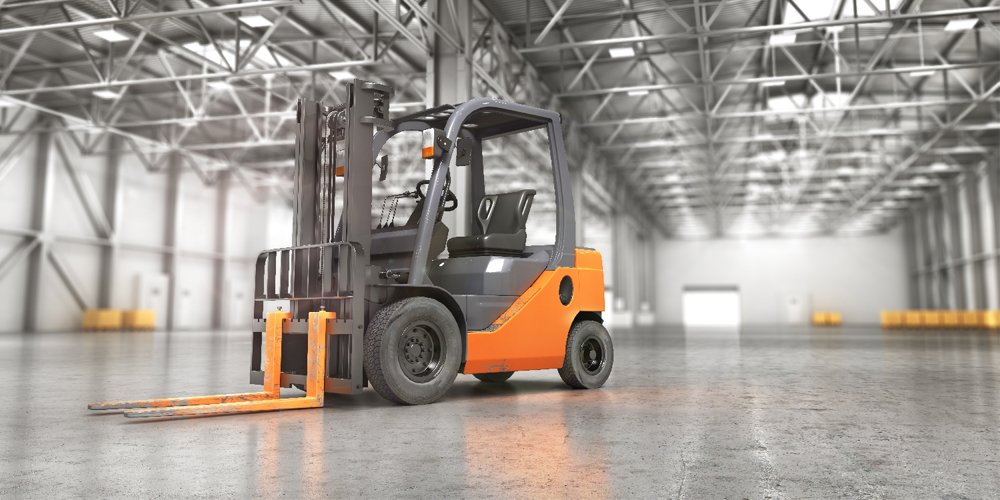Comprehensive Forklift Rental & Dealers Services in Vellore
Discover the best forklift rental and dealership services in Vellore. Sri Amman Fork Lifts comprehensive range includes a variety of forklifts for short-term and long-term rental, as well as new and used forklifts for sale. We offer flexible rental plans, competitive pricing, and reliable maintenance support to meet your business needs. Trust our experienced team for professional guidance and exceptional customer service, ensuring efficient and safe material handling solutions for your operations. Contact us today to learn more about our offerings and how we can help streamline your logistics.
The Ins and Outs of Forklift Rental Services in Vellore
Introduction to Forklift Rental Services
Forklift rental services are a popular option for businesses in Vellore looking to meet their material handling needs without the upfront cost of purchasing a forklift. Understanding the concept of forklift rental services can help businesses make informed decisions when it comes to their operational requirements.
Benefits of opting for forklift rental rather than purchasing
- Cost-effective solution
- Flexibility to scale operations
- Access to latest forklift models
Factors to consider before renting a forklift
- Duration of rental needed
- Size and weight capacity requirements
- Maintenance & support services offered by rental provider
Types of Forklifts Available for Rental
When it comes to forklift rentals in Vellore, businesses have a variety of options to choose from based on their specific needs.
Electric forklifts
Electric forklifts are ideal for indoor operations due to their zero emissions and low noise levels.
Gas-powered forklifts
Gas-powered forklifts are suitable for outdoor applications where higher power is required.
Specialty forklifts for unique requirements
Certain industries may require specialized forklifts such as rough terrain forklifts or narrow aisle forklifts.
Key Considerations for Choosing the Right Rental Service Provider
Selecting the right forklift rental provider is crucial for a seamless rental experience.
Reputation and experience of the rental company
Look for rental companies with a proven track record and positive customer reviews.
Rental terms and conditions
Review the rental agreement carefully to understand the terms of the rental, including insurance coverage and liability
Maintenance and support services offered by the rental provider
Ensure the rental company offers regular maintenance and support to keep the forklift in optimal condition.
Cost Analysis and Comparison
Before committing to a forklift rental, businesses should conduct a thorough cost analysis to determine the most cost-effective option.
Breakdown of rental costs
Consider rental fees, insurance, maintenance, and other additional costs.
Additional fees to watch out for
Be aware of any hidden fees or charges that may apply during the rental period.
Comparing rental costs with purchasing a forklift
Evaluate the long-term costs of renting versus buying a forklift based on your business needs.
Safety Measures and Regulations
Safety should be a top priority when renting a forklift to ensure the well-being of operators and compliance with regulations.
Importance of training for forklift operators
Proper training for forklift operators is essential to prevent accidents and ensure safe handling of materials.
Safety regulations and requirements in Vellore
Familiarize yourself with local safety regulations governing forklift operations in Vellore
Liability considerations for renting a forklift
Understand your liability as a renter in case of accidents or damages involving the rented forklift.
What are the benefits of renting a forklift instead of purchasing?
-
Cost Efficiency
- Lower Initial Investment: Renting eliminates the need for a large upfront capital expenditure, making it financially accessible.
- Predictable Costs: Rental fees are typically fixed, making it easier to budget for equipment costs.
-
Flexibility
- Varied Usage Needs: Renting allows businesses to choose different types and sizes of forklifts based on current project requirements.
- Short-Term Needs: Ideal for businesses with temporary or seasonal demands, avoiding the need to store and maintain equipment when not in use.
-
Maintenance and Repairs
- Included Maintenance: Rental agreements often include maintenance and repair services, reducing downtime and unexpected repair costs.
- No Depreciation Worries: The rental company bears the burden of equipment depreciation, ensuring that businesses always have access to well-maintained, up-to-date equipment.
-
Access to Latest Technology
- Modern Equipment: Rental fleets are usually updated regularly, providing access to the latest models and technological advancements without the need for frequent capital investments.
-
Operational Efficiency
- Reduced Downtime: With rental services, replacement units are often readily available, minimizing operational disruptions in case of equipment failure.
- No Long-Term Commitment: Renting offers the flexibility to return the equipment once the project is completed, avoiding long-term commitments and storage issues.
-
Space Savings
- No Storage Requirement: Renting eliminates the need for storage space for forklifts when they are not in use, which can be particularly beneficial for businesses with limited space.
-
Tax Benefits
- Operational Expense: Rental costs can often be deducted as an operating expense on taxes, potentially providing tax benefits compared to capital expenditure deductions.
-
Trial and Evaluation
- Try Before Buying: Renting allows businesses to test different models and configurations to determine the best fit for their needs before committing to a purchase.
How can I ensure the safety of operators when renting a forklift?
-
Cost Efficiency
- Lower Initial Investment: Renting eliminates the need for a large upfront capital expenditure, making it financially accessible.
- Predictable Costs: Rental fees are typically fixed, making it easier to budget for equipment costs.
-
Flexibility
- Varied Usage Needs: Renting allows businesses to choose different types and sizes of forklifts based on current project requirements.
- Short-Term Needs: Ideal for businesses with temporary or seasonal demands, avoiding the need to store and maintain equipment when not in use.
-
Maintenance and Repairs
- Included Maintenance: Rental agreements often include maintenance and repair services, reducing downtime and unexpected repair costs.
- No Depreciation Worries: The rental company bears the burden of equipment depreciation, ensuring that businesses always have access to well-maintained, up-to-date equipment.
-
Access to Latest Technology
- Modern Equipment: Rental fleets are usually updated regularly, providing access to the latest models and technological advancements without the need for frequent capital investments.
-
Operational Efficiency
- Reduced Downtime: With rental services, replacement units are often readily available, minimizing operational disruptions in case of equipment failure.
- No Long-Term Commitment: Renting offers the flexibility to return the equipment once the project is completed, avoiding long-term commitments and storage issues.
-
Space Savings
- No Storage Requirement: Renting eliminates the need for storage space for forklifts when they are not in use, which can be particularly beneficial for businesses with limited space.
-
Tax Benefits
- Operational Expense: Rental costs can often be deducted as an operating expense on taxes, potentially providing tax benefits compared to capital expenditure deductions.
-
Trial and Evaluation
- Try Before Buying: Renting allows businesses to test different models and configurations to determine the best fit for their needs before committing to a purchase.
How can I ensure the safety of operators when renting a forklift?
-
Proper Training
- Certification: Ensure all operators are certified and have completed a forklift training program that meets OSHA or relevant regulatory standards.
- Refresher Courses: Provide regular refresher training to keep operators updated on safety practices and new equipment features.
-
Thorough Inspection
- Initial Inspection: Perform a detailed inspection of the rented forklift upon delivery. Check for any visible damage, and verify that all safety features are functional.
- Daily Checks: Require operators to conduct daily pre-shift inspections, including checking the brakes, steering, lights, horn, and tires.
-
Safety Protocols
- Load Limits: Ensure operators understand and adhere to the forklift’s load capacity to prevent overloading and tipping.
- Speed Limits: Implement and enforce speed limits within the work environment to reduce the risk of accidents.
- Clear Pathways: Maintain clear and organized work areas to prevent collisions and ensure smooth operations.
-
Personal Protective Equipment (PPE)
- Mandatory PPE: Ensure operators wear appropriate PPE, such as hard hats, high-visibility vests, steel-toed boots, and any other required safety gear.
- Emergency Equipment: Equip forklifts with fire extinguishers and first aid kits in case of emergencies.
-
Regular Maintenance
- Scheduled Maintenance: Ensure that the rental agreement includes regular maintenance checks and servicing by the rental company.
- Prompt Repairs: Immediately report any issues or malfunctions to the rental company and avoid using the forklift until repairs are made.
-
Clear Communication
- Hand Signals: Establish and use standardized hand signals for communication between operators and ground staff.
- Two-Way Radios: Provide two-way radios for communication, especially in large or noisy work environments.
-
Environmental Awareness
- Adequate Lighting: Ensure work areas are well-lit to improve visibility and reduce the risk of accidents.
- Weather Considerations: Be mindful of weather conditions that could affect forklift operation, such as wet or icy surfaces.
-
Operational Limits
- Designated Areas: Restrict forklift operation to designated areas away from pedestrian traffic.
- Secure Loads: Ensure that all loads are secured and stable before moving.
-
Emergency Procedures
- Emergency Plan: Develop and communicate an emergency response plan, including evacuation routes and procedures.
- First Aid Training: Provide first aid training to operators and other staff members.
-
Documentation and Record-Keeping
- Inspection Logs: Maintain logs of all inspections and maintenance activities.
- Incident Reports: Keep detailed records of any incidents or near-misses to identify patterns and prevent future occurrences.
By implementing these safety measures, you can significantly reduce the risk of accidents and injuries when renting and operating a forklift.
Are there any regulations specific to forklift rentals in Vellore?
Yes, there are regulations and guidelines specific to forklift rentals and operations in Vellore, as well as throughout India. These regulations are primarily governed by national safety standards and guidelines, with local enforcement by relevant authorities. Here are some key regulations and guidelines to consider:
-
Occupational Safety and Health Administration (OSHA) Standards
- IS 5154: Indian Standard for Forklifts – It specifies requirements for powered industrial trucks.
- IS 13559: Safety Code for Powered Industrial Trucks.
-
Indian Factories Act, 1948
- Section 7A: General duties of the occupier to ensure the health, safety, and welfare of workers.
- Section 21: Fencing of machinery and ensuring safe operation.
- Section 111A: Right of workers to work in a safe environment.
-
Central and State Rules
- Vellore Specific Regulations: Local labor and safety departments may have additional rules and requirements for operating and renting forklifts within Vellore. It’s important to check with local authorities like the Directorate of Industrial Safety and Health (DISH) for any specific guidelines.
-
Training and Certification
- Operator Certification: Ensure that forklift operators are trained and certified according to recognized standards. This includes knowledge of safe operating practices, load handling, and emergency procedures.
-
Inspection and Maintenance
- Regular Inspections: Forklifts must undergo regular safety inspections to ensure they are in good working condition.
- Maintenance Records: Maintain detailed records of all inspections, maintenance, and repairs.
-
Safety Measures and Equipment
- Safety Features: Ensure that all forklifts are equipped with necessary safety features like seat belts, horns, lights, and mirrors.
- Personal Protective Equipment (PPE): Operators should wear appropriate PPE such as helmets, safety shoes, and high-visibility vests.
-
Load Handling and Stability
- Load Limits: Adhere to the forklift’s rated load capacity and ensure that loads are stable and secure.
- Safe Operation: Implement and follow safe operating procedures, including speed limits and designated pathways.
-
Accident Reporting
- Incident Documentation: Any accidents or near-misses involving forklifts should be documented and reported to the appropriate authorities.
- Emergency Procedures: Develop and implement emergency response plans, including procedures for dealing with forklift-related accidents.
-
Environmental Considerations
- Workplace Environment: Ensure that the workplace is designed to safely accommodate forklift operations, including adequate lighting, ventilation, and clear pathways.
Compliance Checklist:
- Verify Local Regulations: Check with Vellore local regulatory bodies for any additional specific requirements.
- Certification and Training: Ensure all operators are properly trained and certified.
- Regular Maintenance: Adhere to a strict maintenance schedule for rented forklifts.
- Safety Protocols: Implement comprehensive safety protocols and ensure all employees are aware of them.
- Documentation: Keep detailed records of training, maintenance, and incident reports.
By adhering to these regulations and guidelines, you can ensure the safe and legal operation of rented forklifts in Vellore.
Summary
This article provides a comprehensive overview of forklift rental services in Vellore, covering the types of forklifts available, considerations for choosing a rental provider, cost analysis, and safety measures. By understanding these key aspects, businesses can make informed decisions when opting for forklift rentals.
Remember, when considering forklift rental services in Vellore, prioritize safety, cost-efficiency, and finding a reputable rental provider to meet your business needs. Happy renting!
FAQs:
- How often should forklifts be serviced in Vellore?
- Forklifts should ideally be serviced every 200 hours of operation or according to the manufacturer’s recommendations.
- What are the most common types of forklifts used in Vellore?
- Electric forklifts, diesel forklifts, and LPG forklifts are the most commonly used types in Vellore.
- What safety regulations govern forklift operations in Vellore?
- Safety regulations are outlined by organizations like OSHA, focusing on operator training, workplace safety, and equipment maintenance.
- Is it possible to customize a forklift to suit specific business needs in Vellore?
- Yes, many forklift providers in Vellore offer customization options to meet the unique requirements of businesses.
- How can businesses in Vellore ensure cost-effective forklift maintenance without compromising on quality?
- By choosing reliable service providers, scheduling regular maintenance, and investing in smart upgrades, businesses can maintain forklifts cost-effectively.
Remember, when it comes to forklift sales and service in Vellore, knowledge is key. By staying informed and following best practices, businesses can ensure smooth operations and maximize the value of their forklift investments.
Related Areas :
Ariyalur, Chengalpattu, Chennai, Coimbatore, Cuddalore, Dharmapuri, Dindigul, Erode, Kallakurichi, Kanchipuram, Kanyakumari, Karur, Krishnagiri, Madurai, Mayiladuthurai, Nagapattinam, Namakkal, Nilgiris, Perambalur, Pudukkottai, Ramanathapuram, Ranipet, Salem, Sivagangai, Tenkasi, Thanjavur, Theni, Thoothukudi, Tiruchirappalli, Tirunelveli, Tirupattur, Tiruppur, Tiruvallur, Tiruvannamalai, Tiruvarur, Vellore, Viluppuram, Virudhunagar
Top-Quality Forklift Sales & Service in Chennai
Looking for reliable forklift sales and service in Chennai? We Sri Amman Fork Lifts offer a wide selection of new and used forklifts to suit your operational needs, backed by exceptional customer support. Our expert team provides comprehensive maintenance and repair services to ensure your equipment remains in peak condition. With competitive pricing, flexible financing options, and prompt, professional service, we are your go-to source for all your forklift needs. Contact us today to explore our inventory and experience our top-notch service. View More






